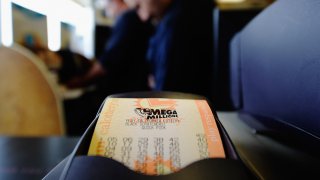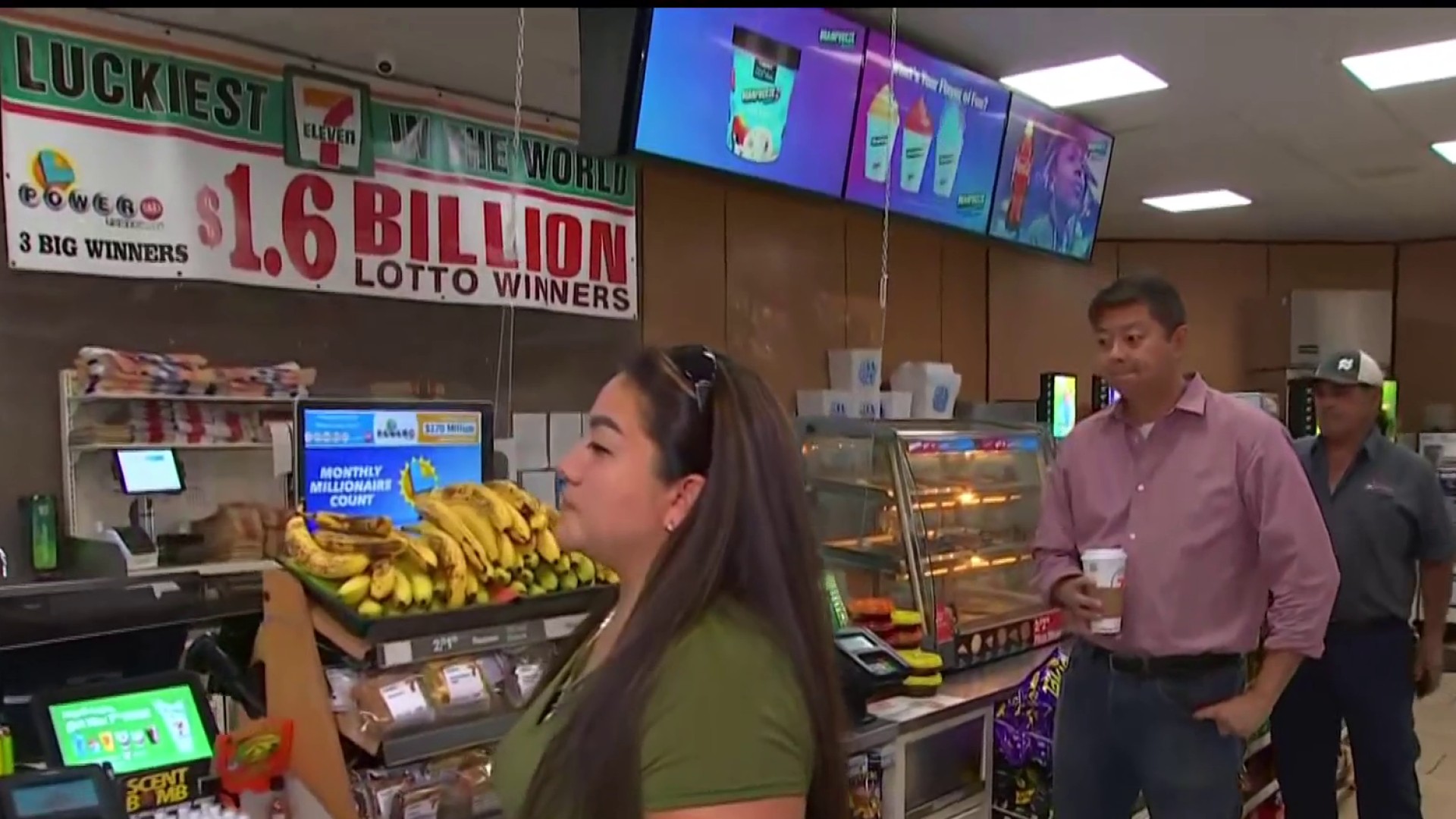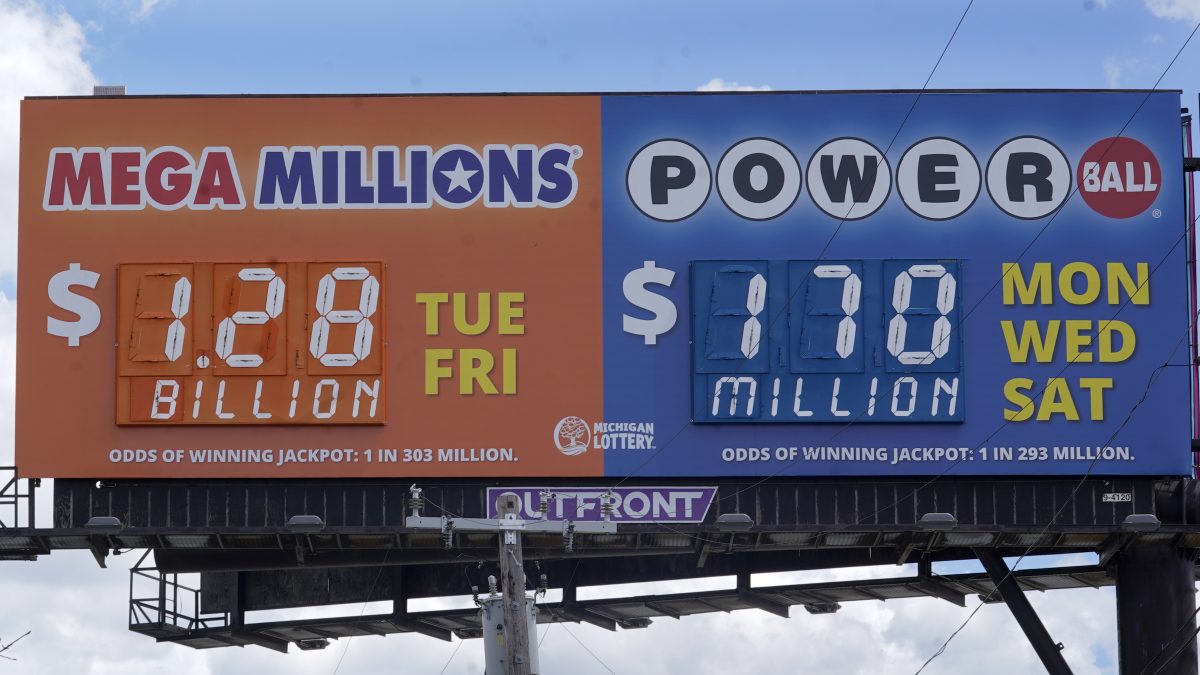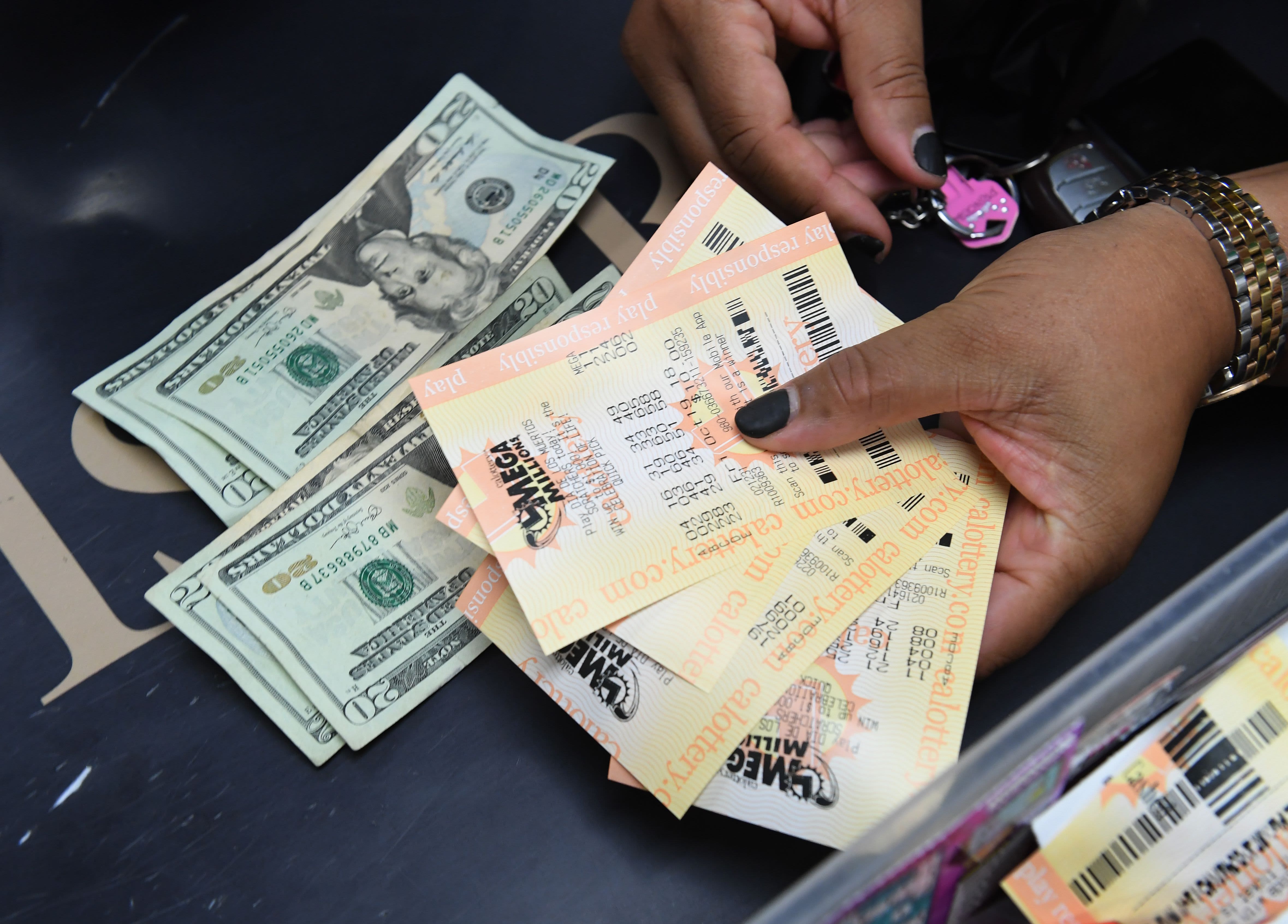
What would you do with a billion dollars?
That question doesn't seem so hypothetical anymore, with millions of people buying lottery tickets every day to try and win the $1.28 billion Mega Millions jackpot drawing Friday night.
You'd be hard-pressed to find someone unwilling to try their luck for that much money, even after taxes. But just because it's a lot of money doesn't mean the odds of winning improve, statistically speaking.
The way the Mega Millions drawing works, five white balls with different numbers between 1 and 70 are drawn from a pool, and then one gold Mega Ball is drawn from a separate pool numbered 1 through 25.
Get top local stories in Southern California delivered to you every morning. >Sign up for NBC LA's News Headlines newsletter.
The order of the numbers on your ticket compared to the drawing doesn't matter, but there's no repeats, and a lot of different ways all six numbers could play out.
That puts your odds of winning the jackpot at 11 p.m. EST Friday at around 1 in 302,575,350, according to Mega Millions.
The Odds of Hitting the Jackpot are 1 in 302 Million
When it comes to hitting the jackpot, the odds are stacked against you. You have a 1 in 302,575,350 chance of hitting the jackpot and a 1 in 12,607,306 chance of winning $1 million. You have better odds of being struck by lightning (1 in 1,222,000) or of randomly picking an active NASA astronaut out of the entire U.S. population (44 in 331,893,745 or about 1 in 7,543,040).
Source: Mega Millions; National Weather Service; NASA; U.S. Census Bureau
Credit: Andrew Williams / NBC
It seems unlikely, but it's a chance, right?
Well, unlikely in this case is very, very, very statistically improbable. Here are the odds of a few other out-there scenarios compared to winning the Mega Millions jackpot.
How likely are you to get struck by lightning?
In 2019, the National Weather Service calculated -- based on data from 2005 to 2018 -- that you have about a one in 1,222,000 chance of getting struck by lightning in any given year.
That's based on the average number of deaths and injuries due to lightning strikes reported each year (about 270, according to the NWS) compared to the general population of the U.S. (which during those years hovered around 330,000,000).
While your odds of being struck by lightning are literally less than one in a million, that is still far more likely than your odds of winning the Mega Millions jackpot.
How likely are you to die in a traffic accident?
According to data from the National Highway and Transportation Safety Administration, around 42,915 traffic fatalities took place in 2021.
That means, in the U.S. overall, your odds of dying after getting hit by a truck, bus or car in 2021 were around 1 in 7,734, based on the U.S. Census Bureau's estimate for the U.S. population.
You're actually less likely to die in a traffic accident in Los Angeles, based on preliminary 2021 crash data from the LAPD compared to the population of the City of Los Angeles. The odds of an LA resident dying in a traffic accident are around 294 in 39,237,836, or about 1 in 133,462 -- but that doesn't account for all the out-of-towners that walk the streets.
In either case, look both ways when crossing the street and before driving at a green light: you're more likely to die in a crash than win the jackpot.
How likely are you to get accepted to Stanford?
One data company focused on education rated Stanford the hardest school in the U.S. to get into, based on data from 2021.
For applicants for the Class of 2025, the school had an admission rate of just below 4%. Only 2,190 of the 55,471 students who applied were accepted.
That puts odds of acceptance to the elite school at around 1 in 25, which is astronomically better than the odds of winning the Mega Millions jackpot.
How likely are you to randomly pick an active NASA astronaut from the entire U.S. population?
NASA is known for being picky with its astronaut applicants. During the last round of applications to start space training, the agency received more than 12,000 applications, and chose 10 people to move forward with the process.
That was out of a pool of U.S. citizens required to have master's degrees in a STEM field, "and a minimum of two years of relevant professional experience or at least 1,000 hours of pilot-in-command time in jet aircraft."
It's no surprise that there's only 44 active NASA astronauts, as of July 29, 2022.
If you were to randomly select one person from the entire U.S. population of 331,893,745 people, as estimated by the U.S. Census Bureau for 2021, the odds of that individual being an active NASA astronaut sit around 1 in 7,543,039.
That's still around 40 times more likely than winning the Mega Millions jackpot.
How likely are you to guess all 50 questions right on a true-or-false test?
Randomly guessing every single answer on a test correctly, or incorrectly, entirely by chance is one of the most improbable scenarios out there.
It's so unlikely that it's been used in everything from profane CollegeHumor skits to Spider-Man movies to demonstrate rigged tests and someone faking stupidity.
Take a 50 question, true-or-false quiz. The test-taker has a 50-50 chance, each question, of guessing correctly. Each time they guess right, the odds of doing it again are even steeper.
That means the odds of getting the desired outcome in a 50-50 toss-up, for 50 questions straight, is about 1 in 2 to the 50th power, or 1 in 1,125,899,906,842,624.
If you're feeling lucky, there's at least one thing that's even less likely than winning $1.28 billion dollars tonight.




